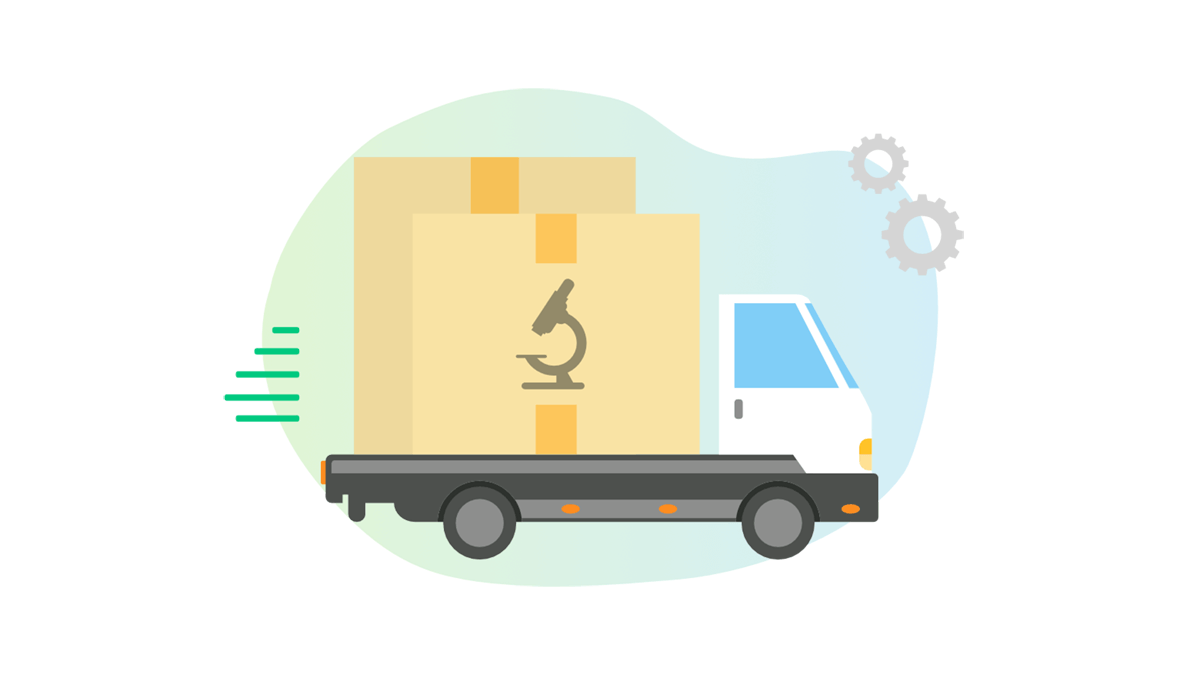Moving to a new lab space is a significant transition. Your new lab will be the home of scientific innovation for years to come, and every decision you make, even those that seem insignificant at the time, will have substantial downstream implications.
All too often, researchers, lab managers, and startup leaders attempt to take on the burden of lab relocation. But the operational complexities of the full process quickly become overwhelming. Moving a lab truly takes a village and tons of careful planning.
To guide you in your lab relocation process, we put together 9 best practices:
Lab Relocation
Having an unrealistic schedule will lead to delays in research, team stress, and high costs. Break each goal down into an actionable step and schedule each atomic unit of action for an appropriate period of time. To better gauge a feasible schedule, time yourself and your team doing certain fundamental tasks and extrapolate what a reasonable timeline would look like from there. Without this proper planning, your lab transition could see 2-4x the costs and time it would otherwise take.
Most decisions around new lab setup impact everyone. Consequently, they are incredibly crucial but can also be seen as everyone’s responsibility, which leads no one to truly claim accountability. Assign each task, no matter how small, to a specific person. When a leg of the process is moving slowly or facing issues, there will be a clear point person to take charge and turn to.
Hope for the best and plan for the worst. Funnel most of your time and energy into making sure plan A runs as smoothly as possible but have a plan B and C for each key possible pitfall.
Lab equipment can frequently be finicky about transport time and environment. Especially if your new lab space is a ways away, make sure all samples are kept in the proper environment (temperature, sun exposure, humidity) for the entire duration.
From vendors to movers to designers, do your diligence on each partner you consider and bring on throughout the process. Ask for references, look into positive and negative feedback, and ask them critical questions about how they would and how they have handled challenges in the face of unexpected obstacles in prior relocation processes.
Keep all team members in the loop, not just for peace of mind but also for transparency around each moving piece so every individual can better plan for their experiments and their role in the relocation and new lab setup.
New Lab Setup
Take time to reflect on learnings and carry these takeaways into the construction and operations of your new lab. What unnecessary expense can be cut away? What process can be better optimized? Without proper tactical introspection, you may be unintentionally carrying over wasteful and other inefficient activities and solutions.
Many new labs are unfamiliar with the safety requirements, certifications, third party vendors, and other requirements needed to get them up and running. Without the knowledge of how long these certifications can take, you may run into significant delays in research. Research in advance and plan ahead. By starting early, you can be fully up and running as soon as possible and ensure everything is in order for experiments to run smoothly and on time.
By taking for granted that certain solutions are provided or easily found, many new labs see issues when it comes to hazardous waste collection, emissions, and other safety issues. Do not assume that the new facility has the same protocols and expectations around these. Do your research meticulously and plan accordingly.
. . .
While lab relocation is a pivotal moment in your lab’s growth and development, the countless logistical processes required are frequently a poor use of your team’s time. When juggling both the scientific and operational projects, all too frequently, both work streams run into avoidable challenges. ZAGENO’s New Lab Setup Service empowers you to spend more time on science. In partnering with ZAGENO, you receive end-to-end operational and project management support to ensure a smooth setup and transition into your new lab space. Have questions? Schedule a free consultation with us, and our experts are here to help.




